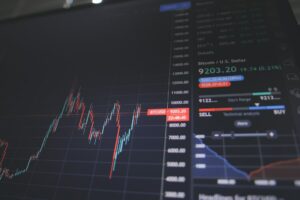Understanding Forex Trading Costs: Spreads, Commissions and Fees
Forex trading is a popular investment option for many individuals around the world. It offers the potential for high returns and the opportunity to profit from fluctuations in currency exchange rates. However, before delving into the world of forex trading, it is essential to understand the various costs involved. In this article, we will explore the three primary components of forex trading costs: spreads, commissions, and fees.
Spreads:
The spread in forex trading refers to the difference between the bid price (the price at which a trader can sell a currency pair) and the ask price (the price at which a trader can buy a currency pair). This difference is measured in pips, which represents the smallest unit of price movement in a forex pair.
Spreads can be either fixed or variable, depending on the broker. Fixed spreads remain constant regardless of market conditions, while variable spreads fluctuate according to market volatility. Typically, major currency pairs have tighter spreads due to their high liquidity, while exotic currency pairs have wider spreads due to lower trading volumes.
For example, let’s consider the EUR/USD currency pair. If the bid price is 1.2000 and the ask price is 1.2002, the spread is 2 pips. When initiating a trade, the trader will start with a small loss equal to the spread. Therefore, it is essential to choose a broker with competitive spreads to minimize trading costs.
Commissions:
In addition to spreads, forex brokers may charge commissions on trades. Commissions are typically applied to trades made through Electronic Communication Networks (ECNs) or Straight Through Processing (STP) brokers. These brokers provide direct access to the interbank market, where traders can trade directly with liquidity providers, such as banks and financial institutions.
ECN and STP brokers charge a commission for every trade executed, which is usually a fixed amount per lot traded or a percentage of the transaction value. The advantage of trading with ECN or STP brokers is that they often offer tighter spreads and faster execution speeds, which can be beneficial for scalpers or high-frequency traders.
Traders should carefully consider their trading strategy and volume to determine whether the potential cost savings from lower spreads outweigh the commission charges. For high-volume traders, paying a fixed commission may be more cost-effective than dealing with wider spreads offered by commission-free brokers.
Fees:
Apart from spreads and commissions, forex traders may also incur additional fees, depending on their broker and trading activities. These fees can include:
1. Overnight fees: Also known as swap fees, overnight fees are charged for holding positions overnight. Forex trades involve borrowing one currency to buy another, and the interest rate differentials between the two currencies determine the overnight fees. Traders should be aware of these fees, especially for long-term positions, as they can significantly impact overall profitability.
2. Deposit and withdrawal fees: Some brokers charge fees for depositing or withdrawing funds from a trading account. These fees can vary depending on the payment method used, such as bank transfers, credit/debit cards, or e-wallets. It is crucial to consider these fees when choosing a broker to ensure they align with your preferred method of funding.
3. Inactivity fees: Some brokers impose inactivity fees if a trader does not place any trades within a specific time frame. These fees are designed to encourage active trading and can be avoided by regularly engaging in trading activities.
It is essential to read the fine print and understand all the potential fees associated with a broker before opening an account. Being aware of these fees upfront will help traders make informed decisions and avoid unexpected costs.
Conclusion:
Understanding the costs involved in forex trading is crucial for any aspiring trader. Spreads, commissions, and fees can significantly impact overall profitability, and thus, traders must carefully consider these costs when choosing a broker and developing a trading strategy.
While it may be tempting to opt for brokers with the lowest spreads or commission rates, traders should also consider other factors such as execution quality, customer support, and regulatory compliance. A balance between low costs and reliable services is key to successful forex trading.
Educating oneself about forex trading costs and conducting thorough research on different brokers will empower traders to make informed decisions and navigate the forex market with confidence. By understanding and managing trading costs effectively, traders can maximize their chances of success in this dynamic and exciting investment arena.






